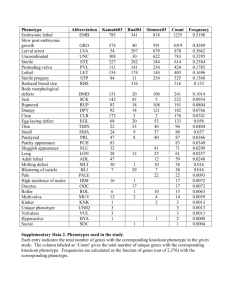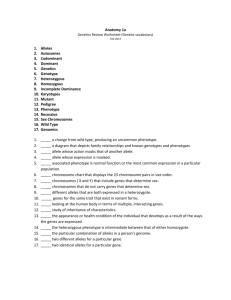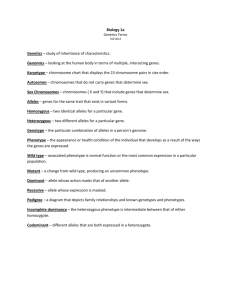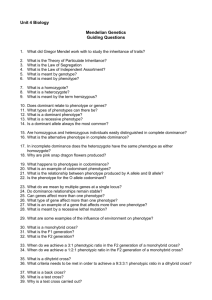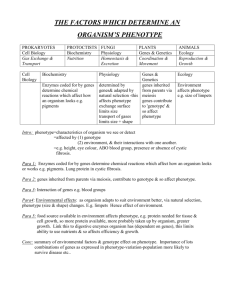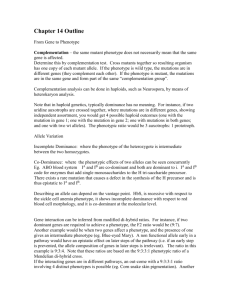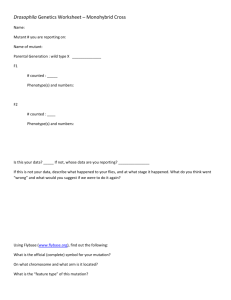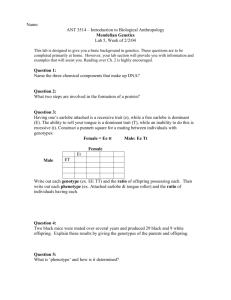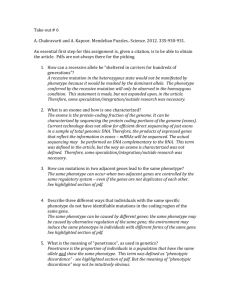WormBase Interaction Definitions
advertisement
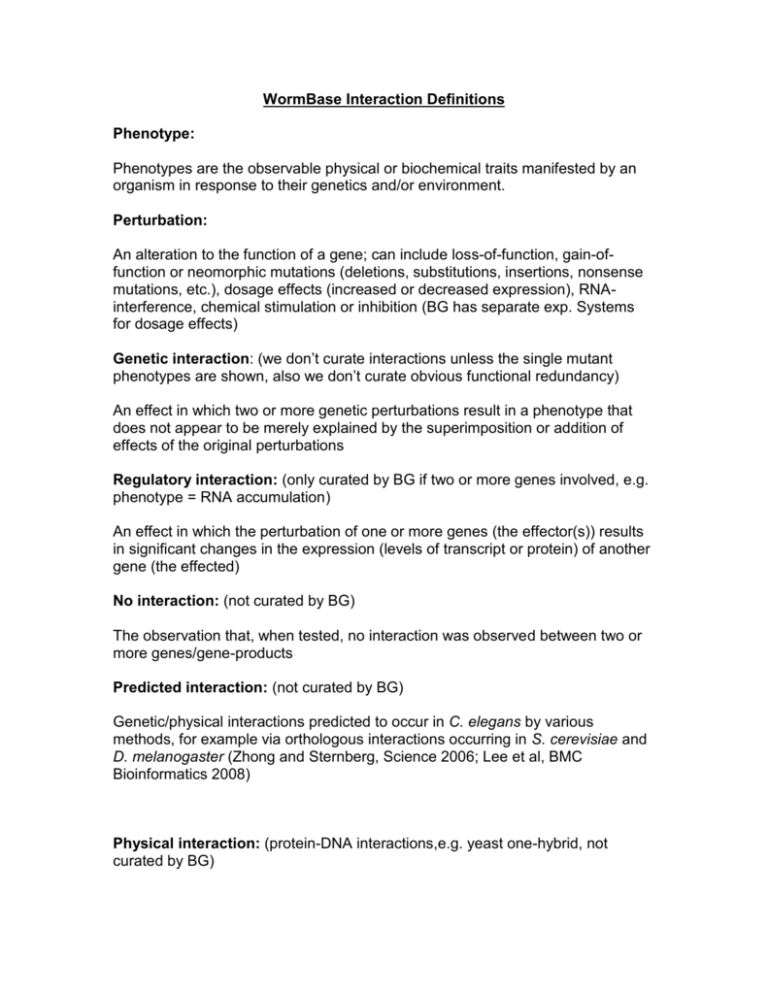
WormBase Interaction Definitions Phenotype: Phenotypes are the observable physical or biochemical traits manifested by an organism in response to their genetics and/or environment. Perturbation: An alteration to the function of a gene; can include loss-of-function, gain-offunction or neomorphic mutations (deletions, substitutions, insertions, nonsense mutations, etc.), dosage effects (increased or decreased expression), RNAinterference, chemical stimulation or inhibition (BG has separate exp. Systems for dosage effects) Genetic interaction: (we don’t curate interactions unless the single mutant phenotypes are shown, also we don’t curate obvious functional redundancy) An effect in which two or more genetic perturbations result in a phenotype that does not appear to be merely explained by the superimposition or addition of effects of the original perturbations Regulatory interaction: (only curated by BG if two or more genes involved, e.g. phenotype = RNA accumulation) An effect in which the perturbation of one or more genes (the effector(s)) results in significant changes in the expression (levels of transcript or protein) of another gene (the effected) No interaction: (not curated by BG) The observation that, when tested, no interaction was observed between two or more genes/gene-products Predicted interaction: (not curated by BG) Genetic/physical interactions predicted to occur in C. elegans by various methods, for example via orthologous interactions occurring in S. cerevisiae and D. melanogaster (Zhong and Sternberg, Science 2006; Lee et al, BMC Bioinformatics 2008) Physical interaction: (protein-DNA interactions,e.g. yeast one-hybrid, not curated by BG) Any physical interaction between gene products (proteins/RNAs) and or genes themselves (e.g. DNA-protein interactions) determined by experimental systems such as Yeast Two Hybrid, Yeast One-Hybrid, Co-Immunoprecipitation, Cofractionation, etc. Suppression: (bait = effected, hit = effector, phenotype type = wild type) An effect in which the perturbation of one or more genes (the effector(s)) results in the amelioration or lessening of the severity/penetrance of a phenotype caused by perturbation of another gene (or genes) (the effected), in effect making the organism more "wild type" in character with regards to the phenotype in question. If the original, individual perturbations of both effector(s) and effected result in the same phenotype (but, perhaps, to varying degrees of severity/penetrance) and the resulting phenotype of their combination is less severe/penetrant than either original phenotype, then we refer to this as Mutual Suppression. (bait = effected, hit = effector, phenotype type = partial rescue) Enhancement: (bait = effected, hit = effector)An effect in which the perturbation of one or more genes (the effector(s)) results in the increased severity/penetrance of a phenotype caused by perturbation of another gene (or genes) (the effected) beyond which would be expected from simple addition or superimposition of the original phenotypes. If the original, individual perturbations of both effector(s) and effected result in the same phenotype (but, perhaps, to varying degrees of severity/penetrance) and the resulting phenotype of their combination is more severe/penetrant than the simple addition of the original phenotypes, then we refer to this as Mutual Enhancement. (bait = effected, hit = effector) Synthetic: (synthetic lethal) An effect in which the perturbation of two or more genes results in a phenotype that is not observed (to any degree) as a result of any of the individual perturbations Epistasis: (classical epistasis not curated by BG as of now) An effect in which, when all perturbations occur simultaneously, the phenotype resulting from the perturbation of one or more genes "masks" any phenotypic effects usually displayed by perturbations in another gene or (other) genes, and that otherwise should be observable (for example, embryonic lethality would mask any post-developmental phenotype, but not necessarily because this is epistasis).
